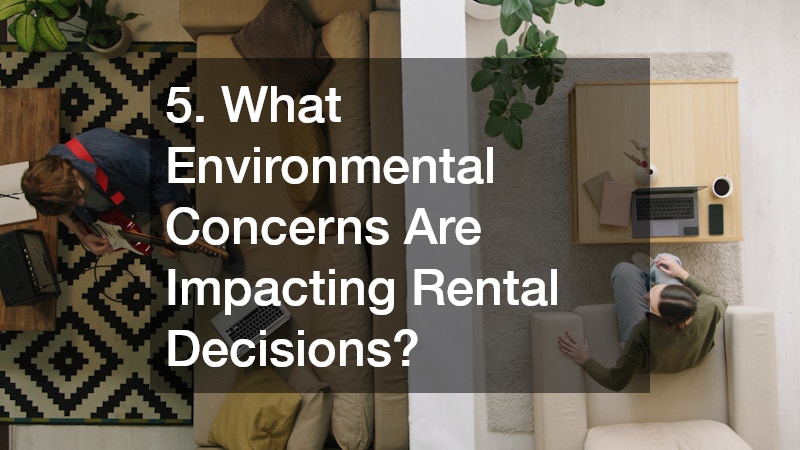The trend of young adults choosing to rent apartments is on the rise, driven by several societal, economic, and lifestyle factors. As the economic landscape evolves and priorities shift, renting becomes an appealing option for many. This article explores the various dynamics that contribute to this growing preference among young adults.
1. What Are the Main Economic Factors Influencing Young Adults to Rent?
1.1 Rising Housing Costs
One of the key economic factors influencing the decision to rent is the rapid increase in housing costs. As property prices soar, young adults find purchasing homes to be financially daunting, leading them to opt for renting instead.
The disparity between income growth and home prices further exacerbates this issue. Young people, facing stagnant wage increases, are unable to keep pace with the climbing costs of home ownership.
This economic strain often results in renting appearing as a more financially viable option. Renting allows for more manageable monthly payments without the immense burden of a mortgage.
1.2 Student Loan Debt
Another significant factor is the burden of student loan debt, which heavily impacts financial decisions. With monthly loan repayments, young adults find it challenging to save enough for a down payment on a home.
The average student loan debt in the United States hinders the ability of many to consider purchasing property. Consequently, renting becomes a practical alternative that offers more immediate financial flexibility.
This debt influences long-term financial planning, causing many to delay the pursuit of home ownership in favor of renting, where initial costs are typically lower.
2. How Has the Job Market Shifted Preferences Toward Renting?
2.1 Job Mobility and Flexibility
The need for mobility in today’s job market is another influential factor. Young professionals frequently change jobs or relocate for better career opportunities, making renting a more flexible option than owning.
Career-driven young adults prioritize the need to stay adaptable, and renting supports this lifestyle by offering the freedom to move without the complexities of selling a home. This flexibility can be crucial in an economy where job stability often requires geographic mobility.
Additionally, the prospect of global or out-of-state job opportunities means that being tied down by home ownership is less appealing. Renting allows young adults to seize career opportunities without heavy financial implications.
2.2 Gig Economy Influence
The rise of the gig economy further influences housing preferences. With an increasing number of young adults participating in freelance or gig work, income stability varies significantly.
In such uncertain financial conditions, renting appears to be a safer choice than committing to a mortgage. Renting provides the ability to manage living costs without the long-term financial commitment of home ownership.
This flexibility allows gig workers to adapt as their financial situation changes, aligning with the unpredictable nature of freelance work. Thus, renting provides the necessary dynamic living arrangement suited to this lifestyle.
3. What Lifestyle Choices Are Encouraging Renting Among Young Adults?
3.1 Desire for Urban Living
Many young adults are drawn to the vibrancy and opportunities of urban environments. Cities offer rich cultural experiences, job opportunities, and social activities that are attractive to younger demographics.
Urban living often comes with a price tag that makes buying property challenging. Renting allows young adults to enjoy the benefits of city life without the prohibitive costs of urban home ownership.
Moreover, with increasing urban development, there are more rental properties with appealing amenities, making city living both accessible and attractive through renting. This provides access to the urban lifestyle without the obligations and costs of ownership.
3.2 Preference for Amenities and Conveniences
Younger renters are drawn to modern apartments that offer a range of amenities. Features such as fitness centers, rooftop decks, and co-working spaces add value beyond mere living space.
The convenience of these amenities within apartment complexes is enticing for those who desire a lifestyle with built-in facilities. Renting can provide access to such perks that would be financially challenging to include in a purchased property.
This shift in preference highlights a generational valuation of experience and convenience over traditional asset-building strategies. Renting in amenity-rich complexes aligns with these evolving lifestyle criteria.
4. How Are Generational and Cultural Attitudes Affecting Home Ownership?
4.1 Shifting Views on Stability and Success
Among younger generations, there’s a noticeable shift in views regarding stability and success. Traditional milestones, like home ownership, are becoming less central to the definition of success.
Young adults increasingly value experiences and flexibility over conventional symbols of stability. Renting conveniently supports this ideal by allowing them to allocate resources toward travel, education, and personal growth.
4.2 Cultural Influences
Cultural and family backgrounds significantly impact attitudes towards housing. For some, the norm of renting is deeply embedded, while others might see renting as a step towards eventual ownership.
In multicultural societies, differing beliefs about property ownership and renting influence housing decisions. Some cultures may emphasize asset accumulation through property, while others prioritize flexibility and mobility.
5. What Environmental Concerns Are Impacting Rental Decisions?
5.1 Sustainability and Eco-Friendly Living
Environmental awareness influences housing preferences among young adults. Many prioritize sustainability and reduced carbon footprints when choosing living arrangements.
Renting offers an opportunity to reside in eco-friendly buildings without the significant investment required to make a personal home sustainable. This is particularly appealing to environmentally conscious individuals who seek to minimize their ecological impact.
5.2 Energy Efficiency in Rental Properties
Energy efficiency is another factor that attracts young renters. Many newer rental properties are designed with energy-saving features that appeal to cost-conscious and environmentally aware individuals.
These features can result in lower utility bills, aligning with the financial priorities of young adults. The availability of energy-efficient alternatives in the rental market offers attractive options for those prioritizing both cost savings and environmental responsibility.








